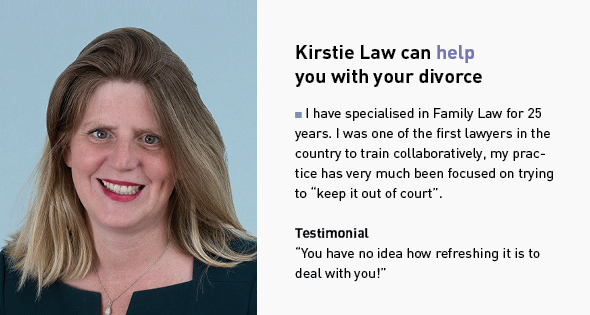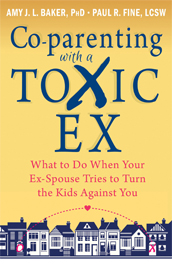Do You Have a Pre-Divorce Checklist?

This blog contains affiliate links, which we may receive a commission for purchases. The decision is yours, whether or not you decide to buy
A lot of people give the issue of whether or not to separate from their spouse, or start divorce proceedings, a lot of thought. Even if you have not come to a conclusion as to whether or not your marriage is over you should consider the following:
Ownership of the house
Check whether your house is registered in joint names or your spouse’s sole name. If it is registered in your spouse’s sole name then to prevent him or her selling or re-mortgaging the property without your consent you can register a restriction with the Land Registry and the necessary form HR1 can be obtained from the Land Registry online.
Even if you do jointly own the property you should check whether you own it as joint tenants or tenants in common. Most married couples own as joint tenants. The consequence of this is that if one dies the other automatically inherits that share, even if a will leaves all the estate elsewhere.
If you do not want your spouse to inherit your 50% share then you can sever the joint tenant enabling you to leave your 50% elsewhere. Do however bear in mind that if you sever the joint tenancy (and you have to tell your spouse that you have done so) this may well prompt your spouse to make a will so that you miss out on their estate including their share of the property.
Making a will
The position with the house has been dealt with above but you may well want to make a will dealing with your other assets, including items of sentimental value such as jewellery which you may prefer to leave to your children rather than your spouse, particularly if he or she is likely to remarry someone else.
Joint accounts
Check whether you and your spouse have any joint accounts, including with banks and credit cards which you both use.
If so check for any recent unusual transactions and also consider whether you want to put a stop on the account or reduce the overdraft or, in the case of credit cards, prevent your spouse from using the card, particularly if you are concerned about revenge spending.
Note however that if you put a stop on or freeze an account that is used to pay bills e.g. the mortgage you will need to make other arrangements for these to be paid.
Change your password and ensure your accounts are secured
A lot of married couples have access to each other’s emails or social media accounts such as Facebook. You may well use your email account to email your solicitor in future so it is important to ensure that this account is secure. Also ensure that your spouse cannot post on your behalf or you may find e.g. photos that you do not want others to see suddenly appearing on your personal profile. Think before you post.
When using social media yourself think about what information will be available to your friends which may include friends of your spouse. Pictures of you enjoying yourself, e.g. on holiday when your spouse is unaware, may lead to resentment and anger.
Know your finances
If you do separate and commence divorce proceedings then your solicitor will need full details of your financial position in order to complete a Form E financial statement. Do ensure therefore that you know what assets you have in your name and details of for example any policies in joint names.
It is sensible to request pension information, including a cash equivalent transfer value for all pensions that you have well in advance because some companies can take three or four months to provide this information.
Keep your personal paperwork private and ensure that you have access to e.g. bank statements for the last 12 months as these need to be attached to the Form E. The Form E can be obtained online and the required attachments are listed at the back of the form.
Future income
Think about what your future income is likely to be. Inevitably when a couple separate reductions will need to be made but bear in mind you may be eligible for benefits that you were not previously e.g. if your spouse earns too much for you as a family to qualify for child benefit once you are separated (and you can be separated whilst living under the same roof), if your income is less, you may be able to apply.
Please also note that you may be eligible for other benefits, depending on what your income is and if there will be only one adult living in the property you will be able to apply for a reduction in Council Tax.
Do not move out
Most solicitors advise against moving out of the family home prior to financial matters being resolved. In practice however some people feel that they are at risk of harm if they remain in the house and if this is the case an application can be made to the court for an Occupation Order. You should seek advice from a solicitor if you are concerned for your safety and likewise if you are threatened with an application for an Occupation Order you should take advice.
Keeping your costs down
A lot of people now do their divorce paperwork themselves and the forms can be obtained online. It is important to get these forms right and particularly if you are concerned that your spouse may commence proceedings in another country it would be sensible to speak to a solicitor about getting the paperwork issued promptly.
You should also take advice from a solicitor as soon as possible if you are concerned that your spouse may dispose of assets which have a significant value including, for example, transferring them to family or friends. You may also want to take advice if you are worried about liabilities and the CAB as well as solicitors can often assist with this.
Consent order
Even if you do not need to take advice from solicitors at the outset, it is important to ensure that any financial agreement reached is converted into a consent order which can be approved by a judge after decree nisi.
If this is not done then potentially either party can apply, before their own remarrying, back to the court for money (including lump sum, maintenance or pension) from the former spouse even if the wealth accumulated after the marriage.
Emotional help
If you are struggling emotionally with the end of your marriage then it would be sensible to see a counsellor alongside a solicitor because a counsellor’s fees are normally significantly less than solicitors and your counsellor can assist you with dealing with the emotional side and ensuring that the time spent with your solicitor is used productively.
Wriiten by Kirstie Law Solicitor, Collaborative Lawyer and Mediator at Thomson Snell & Passmore. www.ts-p.co.uk
PHOTO CREDIT: UNKNOWN
You may also like
Books
Buy now from Amazon
Podcast
If you’re looking for some straight-up, positive advice on topics that affect your daily life, then check out The Sue Atkins Parenting Show. Each week Sue bare will discuss every possible aspect of your parenting challenges, from weaning to whining, boundaries round technology to stroppy teens. You’ll get practical tips, techniques and advice that really work- and it’s all totally free.
Articles
- 7 Things You Should Think About Before Filing For Divorce
- How To Be Great Parents Through Separation And Beyond
- What Is The Best Way For Divorced Parents To Communicate With Their Ex?
Videos
Practical advice and tips from professionals on what to do with issues and challenges around divorce from parenting to finance.
Events
Practical tips & advice designed to help people going through divorce, whether online or in person.
Useful links
Here's a selection of organistaioins from parenting to finance to help you with your divorce.
Parenting professionals
Related Posts
-

Most Common Age for Divorce in the UK and the Key Reasons Behind It
-

Reclaiming Joy After Divorce: Small Daily Rituals That Make a Big Difference
-

Navigating Social Media During Separation: Essential Dos and Don’ts in the UK
-

Is Silence Destroying Your Marriage? How Poor Communication Leads to Divorce (And What You Can Do About It)
-

When Is the Best Time to Start Family Mediation in the UK? | Guide for Separating Couples



.jpg)

.jpg)



.jpg)

